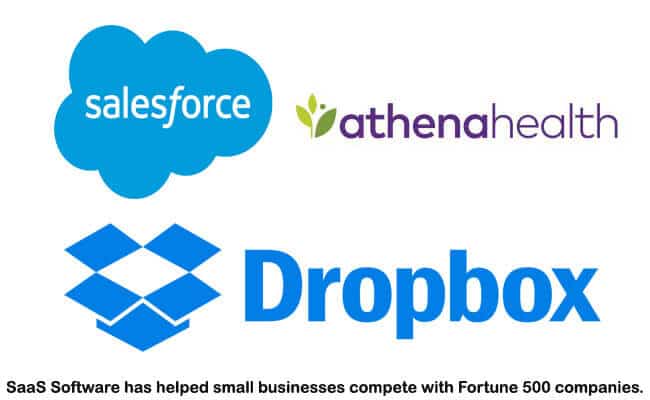Salesforce.com took more than a decade to hit 1 billion in revenues and is today being courted by the likes of Microsoft. It has been rumored that Microsoft offered up to US$ 55 billion to acquire it. To explore and understand SaaS, NSRCEL is organizing a workshop at IIM Bangalore for tech startups. Given below is a brief overview of Saas and Cloud Computing for Startups. The workshop will further elucidate the concepts given below.
SaaS
This refers to the unique model by which programs and applications are delivered over the Internet to end-users. Users no longer need to install the program on their local systems. They can access their data at any time as long as they have access to the Internet. By buying web software you no longer need to worry about upgrades and maintenance as this is done by the SaaS vendor. This helps the company to save costs. We have previously featured several cloud-based tools and resources which you will find useful below:
7 Online Tools for Entrepreneurs. Mambu Cloud Software for Microfinance. Startup Incubators in India.
3 SaaS Companies To Watch Out For in 2016
Athenahealth – A company based in the United States provides cloud infrastructure to maintain health care records online. Salesforce – Provides a suite of tools and applications for Customer Relationship Management (CRM). Salesforce is the leader in the SaaS space and is compatible with multiple vendors. Dropbox – It offers free and paid storage for photos, videos and files. It has emerged as the leader in the online storage space with a 25% market share in business file sharing.
Cloud Computing
When your data is hosted on the cloud all you need is a laptop and an internet connection to access it from anywhere in the world. This ease of use has contributed to large scale adaption across diverse sectors from healthcare to mining.
Advantages of Using Cloud Services
1. Instant Scalability
You can quickly increase your storage or computing power requirements with the click of a mouse button. Companies save time because they no longer need to upgrade their servers manually.
2. Low Cost
The cost of migrating your IT infrastructure to the cloud is initially expensive and requires you to make substantial investments. However, once it is set up, the incremental costs of managing it are very low. It is in the long run that cloud computing delivers because you no longer incur expenditure on the maintenance of servers and networks.
3. The flexibility of Cloud Software Solutions
You can incorporate solutions from multiple vendors without compromising on cost, security, or scalability. Easy interoperability ensures you save money and time. You are also not locked into a particular vendor and can at any time choose to migrate to another service provider.
4. Updates
You no longer need to worry about the security of your server because all of it is managed by suppliers. These vendors update your software and apply security patches to ensure your business-critical data remains secure.
Migrating To A Cloud Solution
Businesses today deploy applications, programs and software tools to cloud servers located around the globe. It is important to backup all your data in case you need to roll back the installation. Do let us know if you require any assistance in setting up your cloud installation in the comments below.

